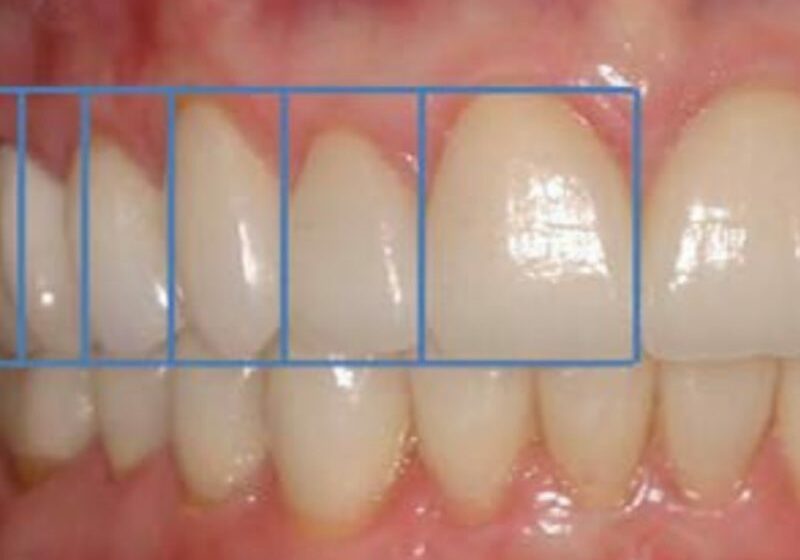Can Dental Care Save Your Life? New Research Says “YES”!
Dr. Lee Ostler
Feb 12, 2018
It’s getting into the news more and more each year that inflammation is the root cause of heart disease, heart attacks and strokes. It is now also being identified as a leading cause of Alzheimer’s, diabetes, cancer and chronic kidney disease.
It is also coming out that risks for these diseases and conditions increases with lack of regular dental care. All these health disorders along with many others, are linked to poor dental health and infrequent dental care.
The bottom line … paying attention to have regular dental care could save your life! In fact, one study looked at the health and dental habits of nearly 6,000 adults and found that those who were not receiving regular care (i.e. twice in the previous year) had a significantly higher death rate (50% more). That’s stunning! Surely, if more of these people had known about this fact ahead of time, wouldn’t they have made sure they were adequately taking care of their oral health?
So… why does it matter? Why is having regular life saving dental care so important to this process of avoiding heart disease, stroke, diabetes, cancer, and Alzheimer’s and dementia? In fact, we could ask … how does good dental health and better oral hygiene care benefit your wellness – at any age?
Approximately 65 million Americans have heart disease, with over 600,000 dying from it each year. Direct costs of treating just heart disease related conditions plus the lost productivity they produce exceed $1 Trillion (with a “T”). That’s a staggering number to deal with by any stretch of the imagination.
We now know that periodontal disease is one of the more common sources of inflammation. Also, one in two adults have gum disease, which is a chronic bacterial infection in the gum tissues around your teeth. Its symptoms include bone loss, ‘gum pockets’, gum recession, bad breath, and bleeding gums. More extreme symptoms include loose teeth, tooth loss, and changes to your bite. Traditional methods for identifying periodontal disease include measuring pockets around each tooth and looking for bleeding in the gums. More advanced methods now include identifying the specific bacterial infection by doing DNA analysis of the infectious bacteria.
Doctors Bale and Doneen were among the first clinician researchers to identify the strong link between gum and heart disease. In a recent article published in the prestigious Postgraduate Medical Journal they found that high-risk gum-disease bacteria were a contributing cause of cardiovascular disease. Again, this was and remains a significant finding – mostly due the fact that this has very seldom been addressed by leading heart disease specialists to date, which makes these new findings so important.
The “mechanism of action” for how this occurs is that bacteria around the teeth strip away the protective skin barrier of the gums, allowing the bacteria and their toxic by-products (called “inflammatory cytokines”) to enter the blood stream and move to other parts of the body. Once in the bloodstream, they exert a bad effect to oxidize cholesterol, harm the inside layer of cells in blood vessel walls (called the endothelium), and lead to blood clots that can trigger heart attacks, strokes and vascular disease. Another recent study found that those with infected gums were 2.5 times more likely to have a heart attack.
How Lifesaving is Good Oral Health – or – “Why Healthy Gums Matter”
Alzheimer’s and dementia: According to a 2016 study, those with severe gum disease are 70% more likely to have Alzheimer’s. Another recent study showed the rate of cognitive decline was six times faster in people with periodontal disease. Ouch!
Breast cancer: Nearly 75,000 women were evaluated in this study and found that those with gum disease had a 14% higher risk for breast cancer. For former or current tobacco smokers the risk jumped to 36%.
Pancreatic cancer: This study showed an increase risk of 150% in pancreatic cancer in people with periodontal disease
Kidney disease: In a study of nearly 700 people it was found that severe gum disease in people with kidney disease was associated with significant kidney function decline. Another study found that periodontal disease was more prevalent in people with kidney disease.
Heart disease & stroke: Level A evidence now exists that periodontal disease is independently associated with arterial disease. It is important for people with gum disease to find out if they have the high-risk bacteria now associated with systemic disease.
A New Approach to Preventing Disease
What is all this emerging research telling us? It says that good oral health is important – and even lifesaving! People with gum disease who have the high-risk bacteria which can be a cause arterial disease, can now receive specific treatments that target these bacteria – and thus lower their risks for disease.












